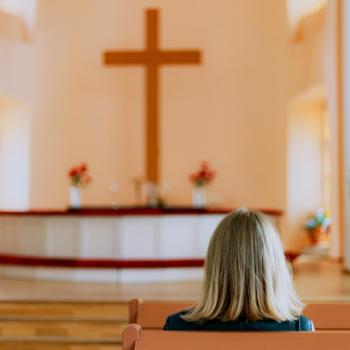
Photo by John Price via Unsplash
How do you ensure congregants and visitors can hear and understand the message, music, or other sounds during a service or worship experience? The key is to find good soundproofing that will ensure sound is at a comfortable level. Here are some soundproofing options for your church and how to control noise in each room, whether the sanctuary or fellowship hall.
Soundproofing in Churches: Options to Consider
Here are some of the soundproofing techniques to prevent noise, reduce echoes and ensure excellent sound quality:
Acoustic Panels
Acoustic panels can improve church acoustics by reducing reverberation and improving speech intelligibility. Too much reverberation can jumble consonant sounds and produce problems with amplified music. Panels make hearing speakers much easier.
If your church band plays contemporary music, it’s a good idea to go for the thicker 2-inch panels to absorb low-frequency sound rather than the regular 1-inch. They come in different colors and designs, making it easier to blend with your aesthetic.
Acoustic Ceiling Clouds
Ceiling cloud panels function similarly to those for walls, minimizing echo and quickening sound vanishing. They are placed up high beneath a translucent cloth or snazzy pattern and complement wall versions admirably.
Together, they slash echos and reduce the time for noise to vanish, rendering surroundings quieter and more suitable for concerts or speeches. They excel at subtle soundproofing while blending seamlessly into decor.
Secondary Glazing Windows
Secondary glazing windows are installed in front of the existing one. This exclusive style decreases sound traveling and significantly reduces outer noises. It can reduce noise significantly, generating a calmer atmosphere for staying focused on the Word in a bible study room. Double-glazed windows also save energy and provide extra warmth through better insulation.
Mass Loaded Vinyl
Big church gatherings generate plenty of noise, but outdoor sounds can invade, too. Mass-loaded vinyl is a helpful item to prevent annoying interferences. It’s ⅛-inch thick per layer and reduces the sound of chatter and movement.
Install it behind completed walls with fasteners or nails. However, it might not be needed for small houses of prayer. It comes in handy for substantial structures demanding powerful barriers against undesired sounds.
Carpet
Sounds naturally move toward rigid areas and reflect them. Even though sleek hardwood floors appear stylish in a chapel, it causes issues since vast, wide-open locations intensify din. Laying carpet substantially lessens noise, enhancing tranquility during prayers and ceremonies.
A gentler surfacing generates a warmer, silent ambiance, uplifting spiritual occasions. If you want to keep your floors as they are, find out if they have underlayment and install it if necessary. This soundproof barrier reduces noise transfer and improves sound quality.
Smaller Solutions
You can also add some of these items to your soundproofing project to improve noise control:
- Sound-block curtains: Install heavy-duty curtains in the auditorium or church hall to absorb and block sound for a quiet atmosphere. Their ability to reduce noise means you can have a peaceful ambiance for a prayer or mother’s room.
- Insulation: Ensure your insulation is up to date. In addition to retaining heat, it can also improve sound absorption. Open-cell foam can be helpful for noise control.
- Plants: Add plants outside as barriers against traffic or other sounds if close to a road. Indoor plants clean the air and make a room aesthetically pleasing. They can also increase concentration and productivity by up to 15%, which will help with bible studies and kids’ ministry.
Soundproofing by Room
Sound reverberation can be reduced through absorption. Softer objects like rugs, curtains and padded chairs cut down echoes and improve clarity. Hard materials, like stone, raise reverberation due to reflectivity. Room size affects resonance duration, meaning bigger churches require more sound-absorbents for prime acoustics.
Addressing echoes calls for the tactical use of sound-absorbent materials, such as diffusers, bass traps, ceiling clouds, and smart speaker placement to manage sound flow and reverberation. Architects and acousticians selectively apply these tools to address varying worship demands. Here’s how you can design sound for each room in your church.
The Sanctuary
Ensuring music and sermons can be heard is vital for a meaningful worship experience. Sometimes, echoes make speeches harder to understand, while lasting sounds enhance music enjoyment. Picking the right audio devices depends on where they will be used, like a recording studio needing less time for sounds to fade away than a concert hall.
Bigger buildings, like cathedrals, may allow sounds to last up to 10 seconds, while most churches should choose settings similar to symphony halls that keep sounds going for around two seconds.
Here are some ways to achieve the perfect mix of sound qualities:
- Place sound-absorbing panels on walls and ceilings.
- Decide on the correct number of panels.
- Put speakers in the right place, pointing them toward the crowd and spreading sound evenly without too much overlap.
- Don’t point speakers at empty walls, and put panels behind them if needed.
- Raise the stages slightly so everyone can see and hear better.
- Choose easy room shapes without corners and edges that cause strange echoes.
- Talk to professionals if dealing with challenging room designs.
Fellowship Halls
Church fellowship halls are big spaces with tough floors and walls where people gather to socialize. They may talk loudly and have trouble following conversations without good sound control. It helps to cover the dividers with acoustic boards that absorb extra sound energy, making it easier for people to hear each other.
Rooms for Bible Study or Private Meetings
Bible study rooms need enough noise control to ensure smooth conversations without external distractions. It also helps create a calm, mindful learning atmosphere for focused scripture study. Here are some ways to soundproof these rooms:
- Install sound-dampening panels made of absorbent material on two connecting interior walls to reduce echoes. The key to cultivating mindfulness is a quiet, comfortable place that will encourage reflection and meditation.
- Ask an expert to measure how much acoustic material each room will need.
- Consider advanced soundproofing techniques if operating multiple religious programs, including blocking exterior disturbances via sealed entryways, windows and ceilings.
Soundproofing for Excellent Acoustics
Good noise control and soundproofing in each room allow congregants to hear the message, worship without disturbance and engage in thoughtful discussion during Bible studies. The right sound makes listening to the Word much more enjoyable.













